The third day of PIFcamp started early for some, with a hike to Planina Lamovje, led by Neža. Most of the participants continued working on their projects immediately after breakfast – we will publish a report on their progress in the next few days, but this time we just give you a quick overview of Tuesday’s events. This is a community report, as the schedule of activities is becoming more and more concentrated day by day, following the usual formula.
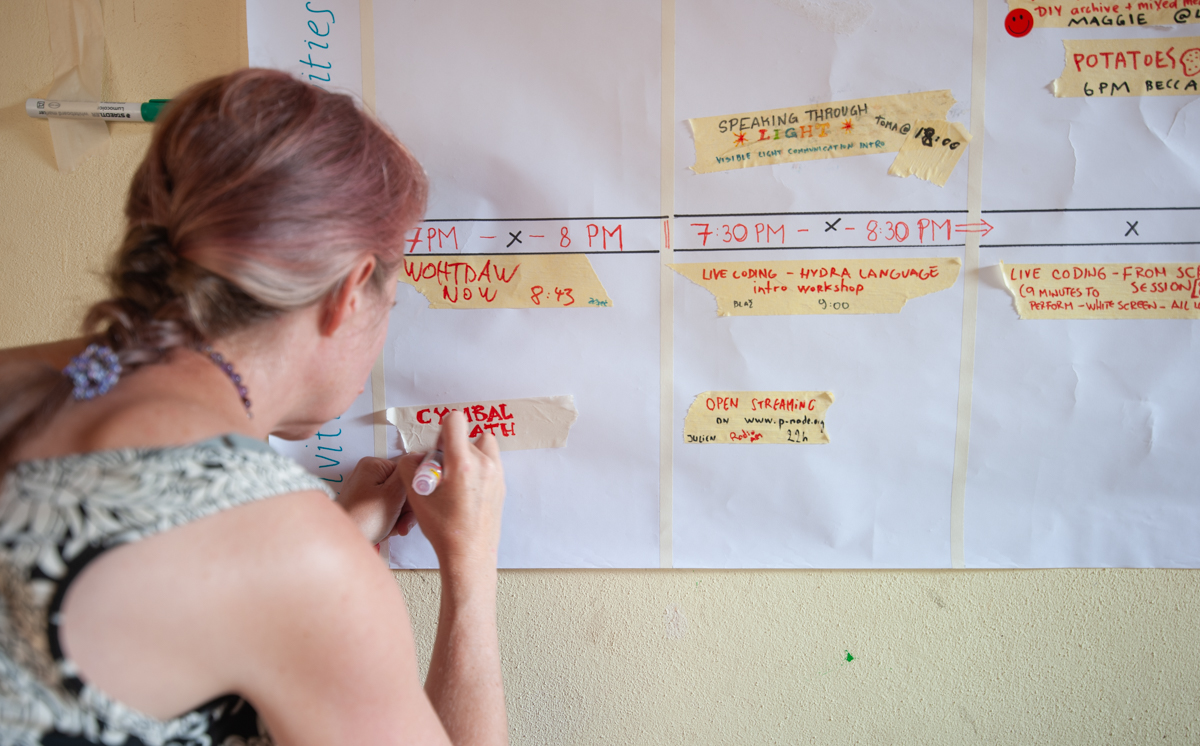
After breakfast, Theun Karelse presented a prototype of a device that aims to give listeners a physical experience of animal calls. The device, consisting of a modified Bluetooth speaker, acts as an inducer of animal sound into the human body. Theun used the sounds of a bee and a grizzly for the demonstration. Participants were able to test the device on their own bodies and noticed that the most immersive experience is created when the device is pressed against the chest – the chest cavity is large enough for the vibrations to resonate well, and the effect of the sound coming from inside the body is the most intense. As reported by Tjaša.
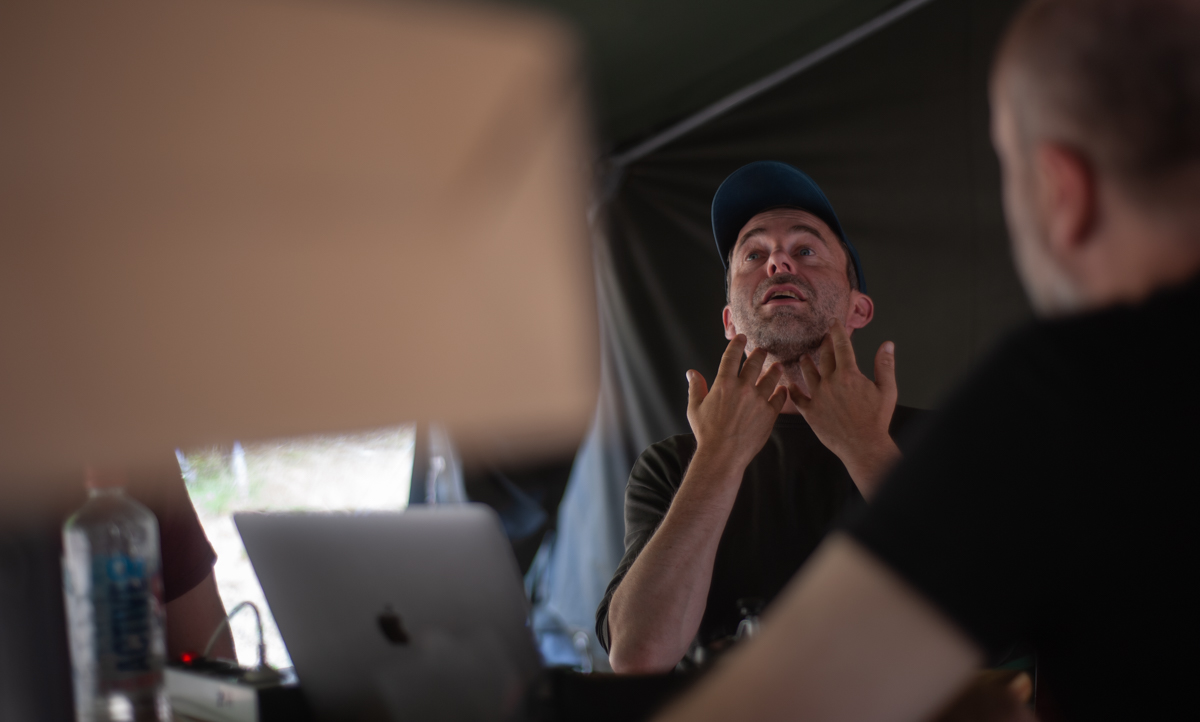
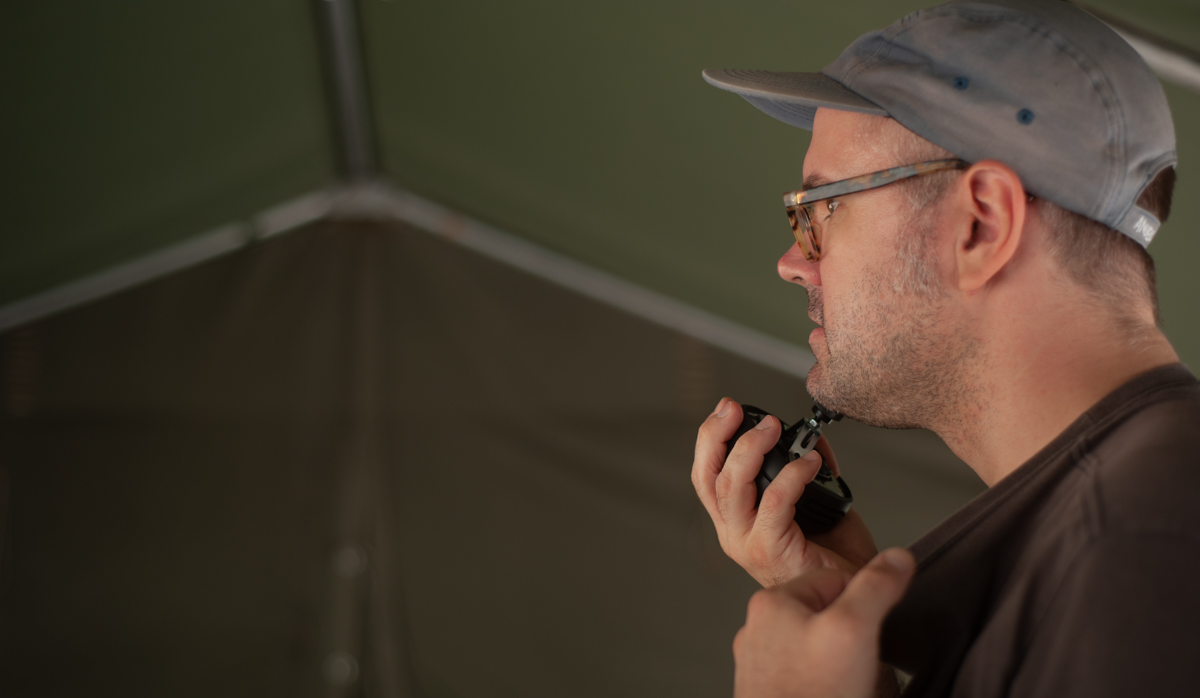
This was followed by a photogrammetry workshop with Žiga Pavlovič (member of the PIFproject reDigital team), visited by our special reporter Dunia. First, participants downloaded the Polycam app, which is optimized for 3D scanning of objects with a phone. Žiga then presented examples of his scans and explained the basics of 3D scanning and modeling in the open source environment Blender. After a short introduction, the participants tried out photogrammetry in practice. They tested two different ways of scanning objects and learned from mistakes. The first way, where the object is moving and the camera is static, did not work – for example, when scanning a participant, a blurry ghost appeared on Dunia’s screen. The second way, in which we reverse the logic (static object, moving camera) proved to be correct and the scan took the image of Miha. To finish the workshop, participants simply downloaded the files in the desired format to their phones and opened them in the 3D environment of their choice.
After lunch, the live coders were at it again. They were gathered under the tent by Niklas Reppel, one of the members of the Toplap Barcelona community, who presented Mégra, his programming language for live music encoding. We asked Niklas about the peculiarities of Mégra and what drove him to create his own programming language. “Most live music encoding languages are based on repetitive functions, but I prefer randomness. At the same time, after the frustrating experience of failed installations of other environments, such as SuperCollider, I wanted to make a program for which the user only needs one file. Mégra is quite self-contained, as it is not based on an existing language. I also see the advantage of creating my own language in that I can play around with putting fun words into the syntax.”
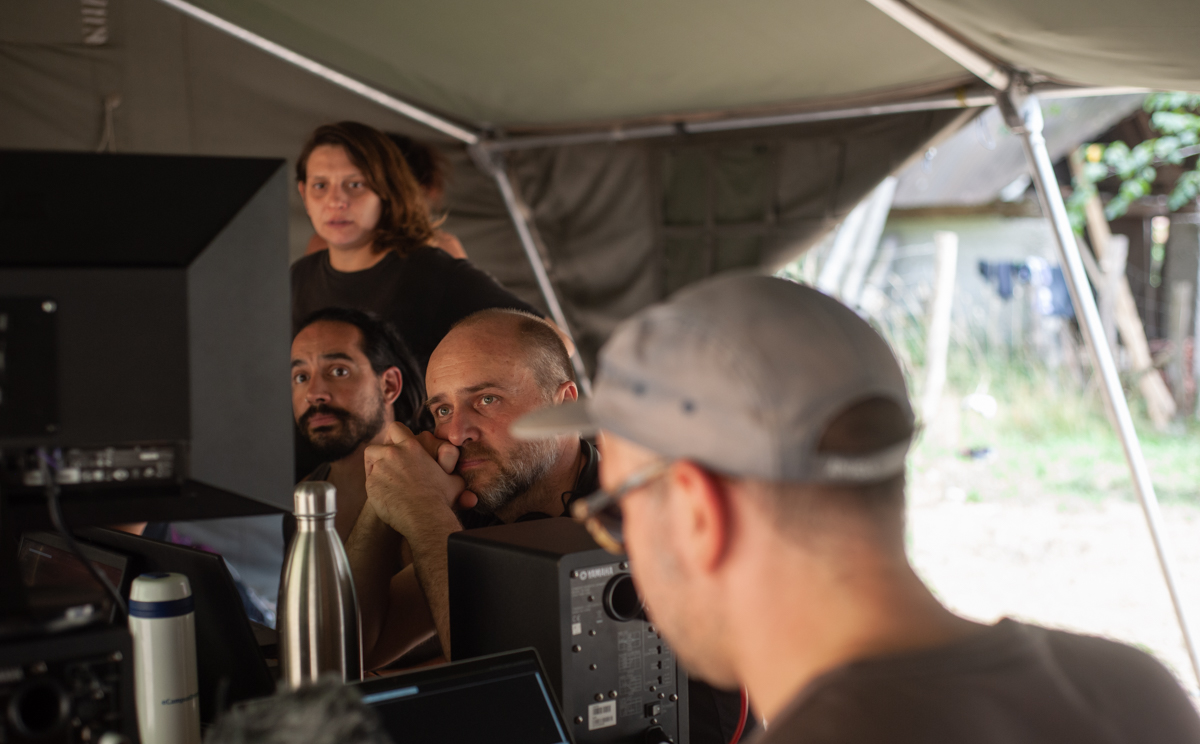
At 4.20 pm, a colorful group of participants gathered under the pagoda for Maggie Kane‘s Fuck Instagram workshop, where, after the obligatory rant, they listened and joined in the reflections on social networks and websites as archives. “Trying to create the ideal website that serves as an archive of current and past projects you do, can be extremely difficult, you always want it to be better.” The decision to go for analog archiving, therefore, came quite naturally – the participants were able to see different approaches to archiving the processes and origins of artworks/projects through the examples of booklets. In the end, participants were invited to reflect and contribute ideas for community archiving of the projects produced at PIFcamp. Impressions summarised by Rea.

Before dinner, some of the participants moved under the tree canopy for the Becca Rose Potato Workshop. An anonymous field mouse attended the workshop and sent us their report. “We were invited to sit under the canopy of a tree that I had never sat under before because it is hidden behind a large tent. We all sat on the ground there and mixed into five groups to start. We thought about potatoes and computers, about which we then wrote two poems per group, which we then read out in front of the rest of the group. We were very kind to computers in our poems, which may be a rarity in the general public, but yes, we are at PIF and … As a group, we also seem to be big potato lovers, as after reading our poems we exchanged many more stories and anecdotes related to his particular vegetable. The main part of the workshop followed, where we turned the potato into a battery and used it to power the synthesizer and the LED lights.”
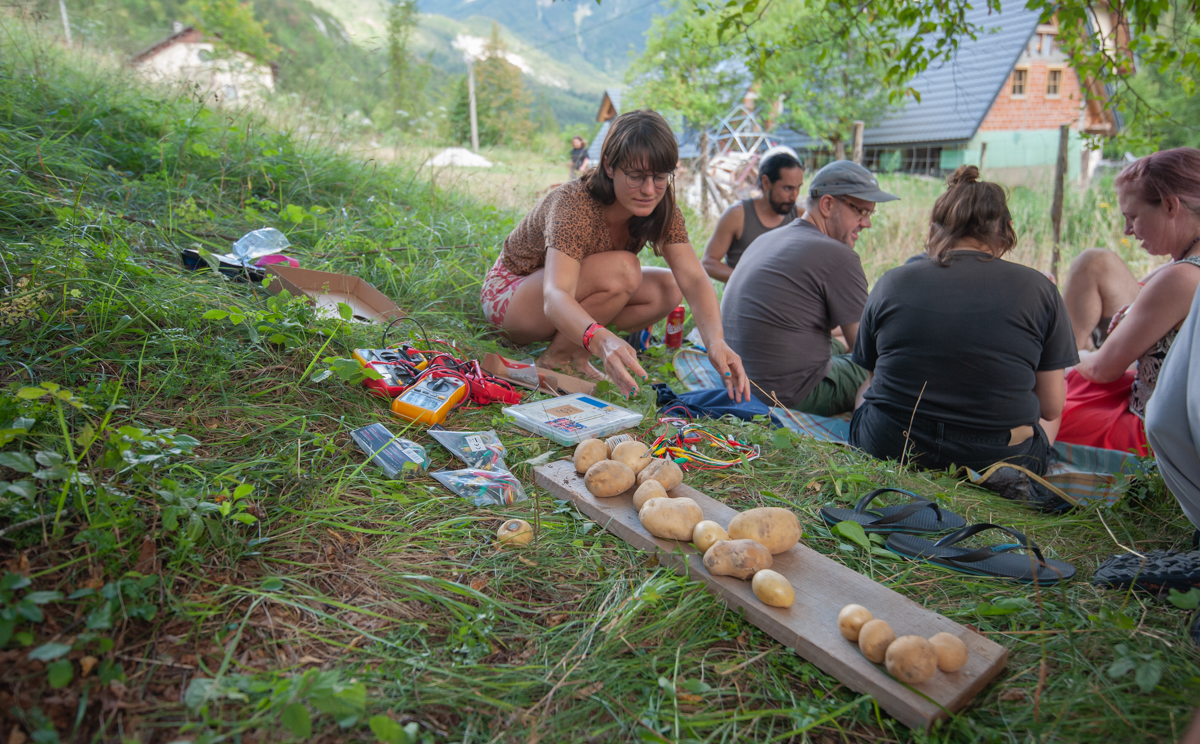
All the potatoes made the participants hungry, but fortunately, when they arrived on the terrace, dinner was waiting for them with a very special dessert, a birthday strawberry cake for Maggie – happy birthday!
The evening started with a live coding event – From Scratch, where coders, as well as some complete beginners from Monday’s workshops, tried their hand at coding music and visuals. According to the organizers of such events, the PIF From Scratch lineup was the largest ever! Another PIFsuccess! You will be able to read a report from the event in the next few days when we will premiere a documentary about the live coding community on PIFlog. Don’t miss it!